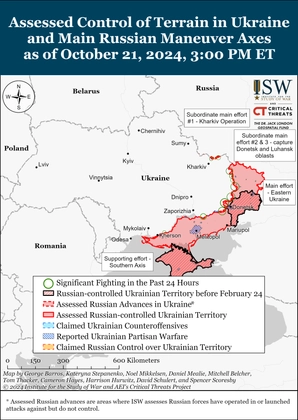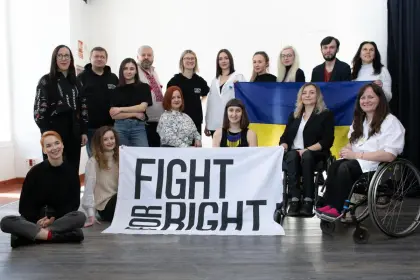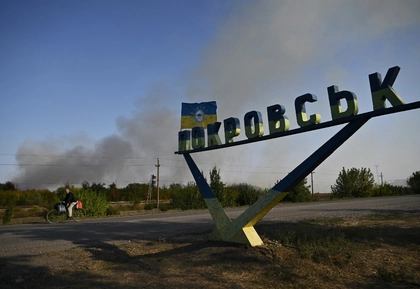You can listen to the article in audio format by following the link provided.
More than 40,000 people – that’s the number of Ukrainians who were living in institutions by the start of the Russian full-scale war. These places are homes to children, the elderly, and, for the most part, persons with disabilities – especially those with intellectual disabilities.
JOIN US ON TELEGRAM
Follow our coverage of the war on the @Kyivpost_official.
When Russia launched its full-scale invasion back in 2022, many of the residents of these institutions were stuck in the most dangerous parts of the country. The state was slow to evacuate them all, and we still don’t know the number of residents who remain in institutions in occupied regions. There are 24 institutions in the areas under Russian control, and these include homes for adults and children with intellectual disabilities.
Some of the residents were forcefully deported to Russia when Russian soldiers were retreating from the Ukrainian territories. For example, Russians deported children with intellectual disabilities who lived in a home in Oleshky, Kherson region. Ukraine has few options to bring them back.
The inability to evacuate all residents of institutions amid war highlighted one of the many challenges of the institutionalization system – such as depriving individuals of autonomy and the segregation of persons with disabilities from the rest of society.
Lyudmyla Fursova is one of the people trying to fight against this system. She’s a human rights activist, a person with disability, and an advocacy manager at the Fight For Right, an organization that works toward inclusion and equality in Ukrainian society.

ISW Russian Offensive Campaign Assessment, October, 22, 2024
“Institutionalization happens when communities lack services for persons with disabilities,” Fursova said, “This way, putting them in institutions becomes the main option. This leads to exclusion of persons with disabilities – so they are not treated as a part of society, and they are not involved in decision-making in any way.”
Fursova and her team have been studying the way institutions operate – and the experience of the many residents who are often unable to leave these homes. Even if the services are abysmal, or in cases of an actual war – like the Russian invasion – persons with disabilities lack alternatives or safe spaces where they can go to.
“This is the reason we call these homes places of unfreedom,” Fursova said, “So we’re working toward changing the way they are and the whole approach to institutionalization.”
Relics of the past
The large network of institutions – such as homes for children without parental support, persons with disabilities, and the elderly without families – is a legacy of Soviet times. The Communist regime preferred to lock people up whenever they did not conform to certain norms – and there was little integration of persons with disabilities in everyday society.
Contemporary Ukraine still battles with this institutional legacy – as many children with disabilities are forced to attend school separately, and similarly, adults with disabilities are often staying in segregated institutions as there are few alternatives for them to be actively engaged and supported in their local communities.
“What’s more, lots of these institutions provide very low quality of services,” Fursova said, “On paper, they have to do lots of things, but in reality, all the residents get is food and lodging. More importantly, people in these homes don’t make decisions about their lives, don’t participate in the life of the community, and often cannot leave these spaces. That’s why we call them places of unfreedom.”
“And besides, people often end up in these homes by force,” she added, “That happens when there are gaps in the system of social services, and institutionalization is, once again, perceived as the only solution.”
Things started to change some ten years ago – after the Revolution of Dignity that led to greater democratization in Ukraine. This is when state institutions began rethinking the old practices and working on getting rid of the relics of the Soviet past. Yet, despite some steps toward inclusion, progress has been slow and mostly limited only to the education sector.
“The issue of reorganizing the existing system and closing of institutions is very complicated,” said Fursova, “The ideal situation is when people don’t live in these homes at all, and these are all shut down.”
“However, in today’s Ukraine, we’re really far away from this scenario,” she continued, “Primarily, before we close anything, we need to provide alternative services, so people don’t end up on the streets. We need to create a system of services and support in the communities which enables an independent life for every person.”
In her advocacy work, which spans more than a decade, Fursova has experienced firsthand the challenges that stem from the lack of inclusion. Visually impaired, she’s been working for different human rights organizations across Ukraine, lobbying for a greater involvement and integration of other Ukrainians with disabilities. In some cases, her work was interrupted because the government offices didn’t have the capacity to work with her – or didn’t have a strategy on how to do that. That’s why in her current job, Fursova is trying to advise the government on what to do – and what not to do when serving persons with disabilities. At Fight for Right, she is working on a two-year-long project to create prerequisites for an independent and dignified life for all.
“Creating services and conditions for the persons with disabilities takes time and effort,” the expert said, “This also applies to the strategy of enabling independent living in different communities. However, the many barriers in our society affect many more people besides those who have a disability. So it’s crucial to build partnerships with the state as well as other NGOs to address that – and that’s what we’re doing.”
Being independent is key
“Every person, regardless of disability, has a right to make a decision on where to live, and with whom,” Fursova said, “Unfortunately, many persons with disabilities don’t have that option.”
According to her, the state institutions in Ukraine don’t provide sufficient support for persons with disabilities – so they are often deprived of their rights such as autonomous living.
Ukraine ratified the UN Convention on the Rights of Persons with Disabilities back in 2009. The convention requires the state to reform the existing system of institutions. However, besides changes in the current approach to orphanages and homes for children, the role of other institutions remains the same. In more than ten years, little has been done to reform the homes for the elderly or institutions for adults with intellectual disabilities.
“We understand that these processes are hard, so we’re offering our support and expertise for the state on these issues,” Fursova said, “Yet, we don’t see a clear strategy from the government that would highlight that persons with disabilities should not be placed in homes.”
The expert stressed that independence is crucial for persons with disabilities. This means creating all sorts of social services such as accompaniment, supported living, personal assistance, and so on, as well as providing medical care, social housing, and rehabilitation. Further, this includes general inclusivity – such as barrier-free infrastructure and promoting open-mindedness and respect among Ukrainians.
“However, to implement these solutions and reform the system that we already have, we need to know what different communities are really like,” Fursova said, “We need to know exactly what people who are currently institutionalized truly need in terms of support. This is a hard evaluation to make because we’re talking about many different groups. We’ve got adults who moved from children’s homes into homes for grown-ups and have no experience living outside an institution; we’ve got people who were institutionalize in an adult age, so they’ve got some experience living independently or with family support.”
While the activist admits that transforming the system completely will be hard – and even more challenging in times of war, the state and civil society should work on prevention, so more persons with disabilities are not sent into homes.
“My team and I are collecting all the information on institutionalization in Ukraine,” Fursova said, “We hope to use all this data to prepare a strategic document. The latter, if implemented, would allow replacing the existing system with an approach where persons with disabilities receive relevant support in their home communities.”
“For me, it truly matters that everyone can realize their rights – whether one has a disability or not,” Fursova concluded, “So it’s crucial to address segregation that exists now. That’s why I am advocating for dignity for all – and for transforming the system that we have so persons with disabilities can lead independent, community-rich lives.”
You can also highlight the text and press Ctrl + Enter






